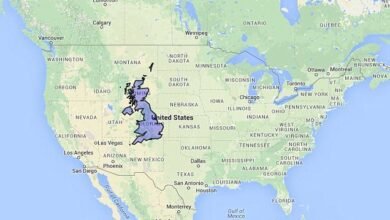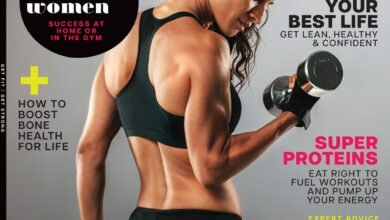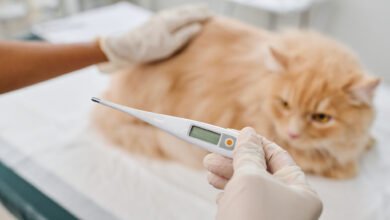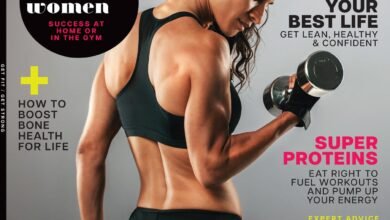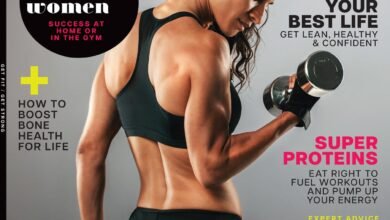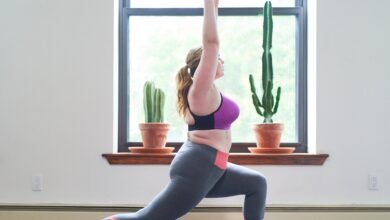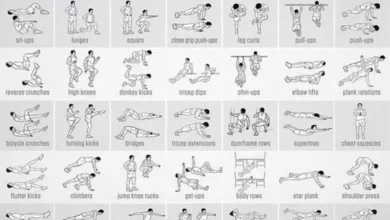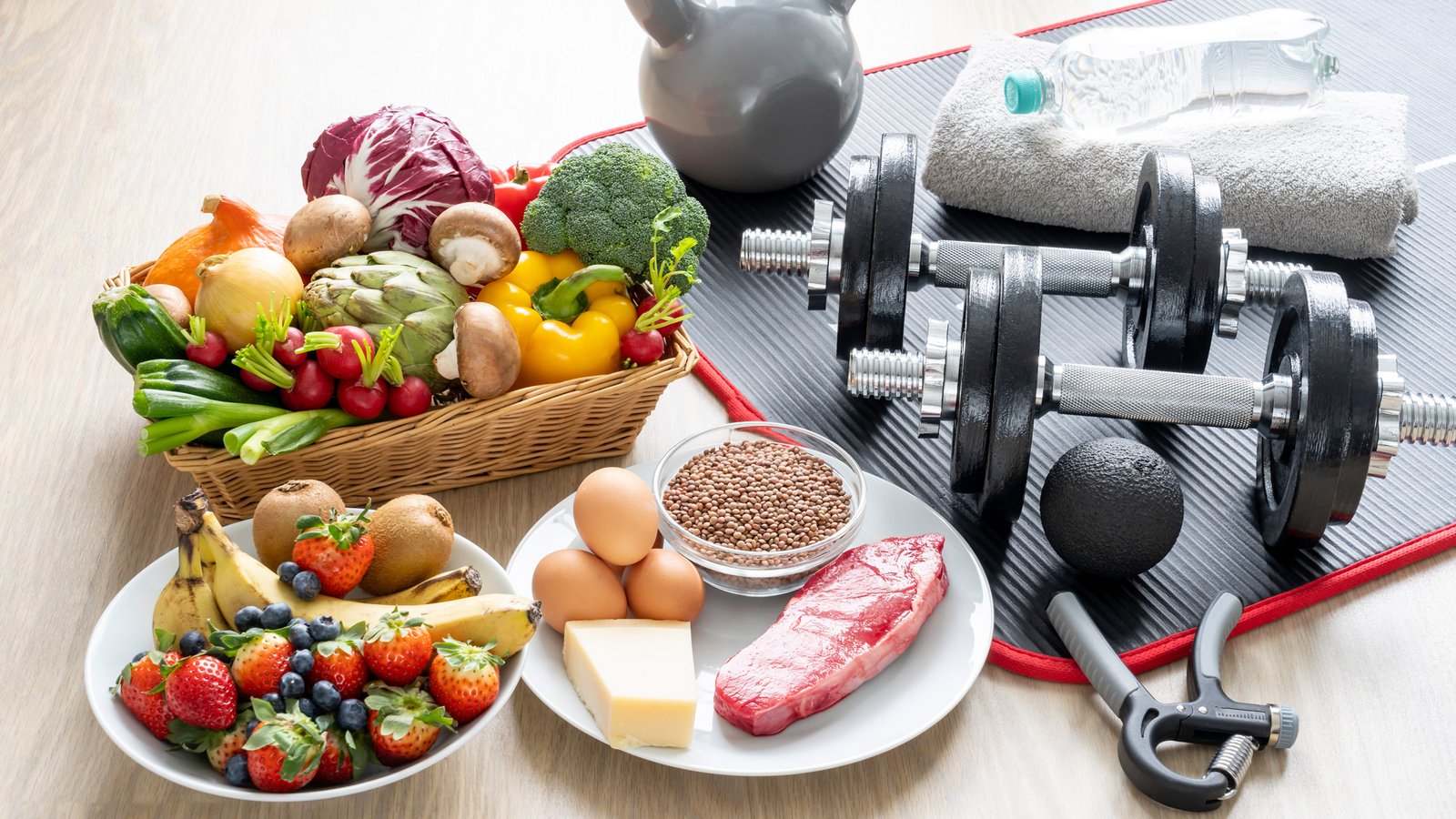
What to Eat Before And After a Workout for Maximum Results*: Boost Your Performance
Are you looking to boost your workout results? The secret might be on your plate.
What you eat before and after exercising can make a significant difference in your performance and recovery. Imagine feeling more energized, recovering faster, and seeing better progress in your fitness journey. You deserve to know how to fuel your body for maximum results.
This guide will reveal the top foods that can power your workout and optimize recovery. You’ll discover how simple dietary choices can transform your gym sessions. Ready to unlock your potential? Let’s dive into the essentials of pre and post-workout nutrition!
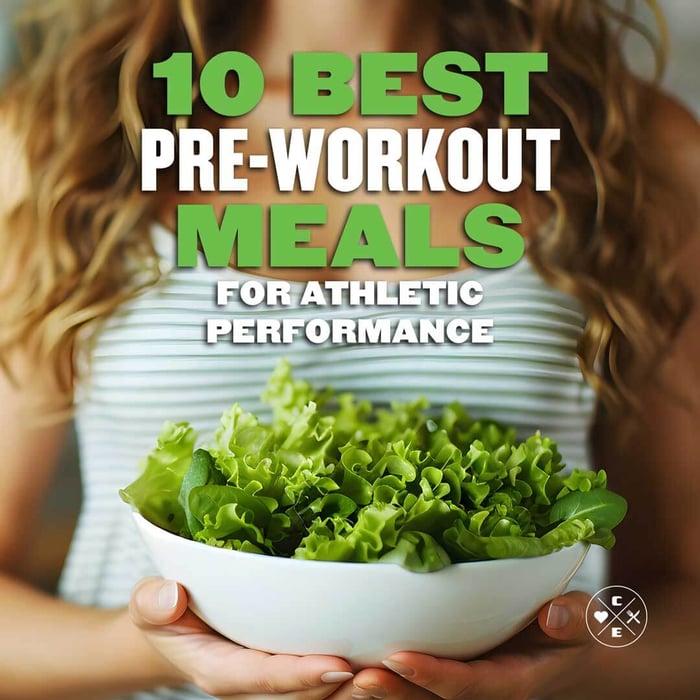
Credit: www.cleaneatzkitchen.com
Pre-workout Nutrition
Getting the most out of your workout starts with what you eat. Pre-workout nutrition plays a crucial role in determining how effective your exercise routine will be. The right combination of nutrients fuels your body, giving you the energy to push through tough workouts and achieve maximum results. Let’s dive into how you can optimize your pre-workout meal.
Ideal Macronutrient Balance
Before hitting the gym, focus on a balanced mix of carbohydrates, proteins, and fats. Carbs are your body’s primary source of energy. They help maintain your stamina during intense activities. Include complex carbohydrates like whole grains or oatmeal in your meal.
Proteins are essential for muscle repair and growth. A moderate portion of lean protein such as chicken, fish, or tofu can be beneficial. Fats, although often overlooked, are vital for long-term energy. Opt for healthy fats like avocado or nuts to keep your energy levels stable.
Timing Your Meal
When should you eat before a workout? Timing is crucial. Eating too close to your workout can make you feel sluggish or nauseous. It’s best to consume your pre-workout meal 1-3 hours before exercising. This gives your body time to digest and convert food into energy.
Consider your schedule and workout intensity. A larger meal is suitable if you have more time before exercising. If you’re short on time, a light snack such as a banana or a protein bar can be effective.
Have you ever felt out of energy halfway through your workout? Reflect on your pre-workout meal and timing. It might be the key to improving your performance and reaching your fitness goals.
Carbohydrates For Energy
Carbohydrates are your body’s primary fuel source during a workout. They provide the energy you need to push through those tough reps and sprints. Understanding the right type of carbs to eat can maximize your performance and recovery. Whether you’re prepping for an intense session or refueling afterward, carbohydrates play a crucial role in your fitness journey.
Slow-release Carbs
Slow-release carbs are your workout secret weapon. Foods like oatmeal, whole grains, and sweet potatoes release energy gradually. This keeps you energized throughout your workout without the crash. Imagine running a marathon; you wouldn’t want to burn out halfway. Slow-release carbs ensure steady energy levels, letting you perform your best.
Have you ever felt drained halfway through a workout? That’s probably because your energy source wasn’t sustainable. By including slow-release carbs in your pre-workout meal, you can maintain stamina and endurance. Next time, try a bowl of oatmeal or a slice of whole-grain bread before heading to the gym.
Quick Energy Sources
Sometimes, you need a quick energy boost, especially for short, high-intensity workouts. Fast-burning carbs like bananas, rice cakes, or a small piece of fruit can provide that immediate energy. Think of it as the turbo button for your body. These quick sources are perfect for workouts like HIIT, where quick bursts of energy are essential.
Ever reached for a banana before a workout? It’s a quick source of energy that gets your body moving. Quick energy carbs are best consumed about 30 minutes before exercising. They act fast, allowing you to maximize your workout intensity without feeling sluggish.
Do you often feel tired before completing your workout? That could be a sign to adjust your carb intake. By mixing slow-release and quick energy carbs, you can optimize your energy levels. Whether it’s a long run or a high-intensity session, the right carbs can make all the difference.
Protein For Muscle Support
Protein plays a crucial role in muscle support and recovery. Consuming the right protein before and after workouts aids muscle repair. It enhances growth and performance, helping achieve fitness goals efficiently.
Lean Protein Options
Lean proteins are essential for muscle growth. Chicken breast is a popular choice; it’s low in fat and high in protein. Turkey is another great option, offering similar benefits with fewer calories. Fish, especially salmon, provides omega-3 fatty acids alongside protein. These nutrients support muscle health. Eggs are versatile and rich in protein, making them ideal for any meal. Greek yogurt offers protein and probiotics, aiding digestion and muscle recovery. Include these lean proteins in your diet for optimal muscle support.
Plant-based Proteins
Plant-based proteins are excellent for muscle support. Lentils are high in protein and fiber, promoting energy and satiety. Chickpeas offer protein and essential vitamins, supporting overall health. Quinoa is a complete protein source, providing all essential amino acids. Tofu and tempeh are versatile and rich in protein, suitable for various dishes. Nuts and seeds, like almonds and chia, provide protein and healthy fats. These options ensure adequate protein intake for vegetarians and vegans.
:max_bytes(150000):strip_icc()/pre-workout-meals-and-snacks-4135417-ADD-Color-V2-FINAL2-b010d4314f7c4034baf22b21854e7ef3.jpg)
Credit: www.verywellfit.com
Hydration Strategies
Staying hydrated is crucial for anyone looking to maximize their workout results. But how do you know you’re hydrating effectively? It’s not just about drinking water; it’s about timing and balance. Let’s dive into hydration strategies that can boost your performance and recovery.
Importance Of Water
Water is the cornerstone of any hydration strategy. Your body needs it to function efficiently during workouts. Without adequate water intake, your muscles can feel tired, and your energy levels can drop. Aim to drink water throughout the day, not just before and after exercising.
Consider carrying a water bottle with you to remind yourself to sip regularly. A good rule of thumb is to drink at least eight glasses a day, more if you’re active. Have you ever noticed how much better you feel during a workout when you’ve been drinking enough water?
Electrolyte Balance
While water is essential, electrolytes play a critical role in maintaining hydration balance. These minerals—like sodium, potassium, and magnesium—help regulate your body’s fluid levels. Losing them through sweat can lead to cramps and fatigue.
Adding a pinch of salt to your water or snacking on a banana can help maintain your electrolyte balance. Sports drinks are also a handy option, especially during intense workouts. Have you ever tried switching to a sports drink mid-exercise and noticed a boost in your energy?
Getting your hydration right can be a game-changer for your workouts. Are you paying enough attention to your hydration strategies? Next time you hit the gym, think about your water and electrolyte intake. You might just see a difference in your performance.
Post-workout Recovery
Achieving maximum results from workouts requires understanding post-workout recovery. After exercising, your body needs specific nutrients to repair muscles and replenish energy. Eating the right foods helps improve recovery and enhances performance. Let’s explore how to refuel effectively.
Replenishing Energy Stores
Carbohydrates play a crucial role in energy recovery. They refill glycogen stores depleted during exercise. Choose whole grains like brown rice or quinoa. Fruits such as bananas and berries are excellent options. These foods provide quick and efficient energy.
Protein For Muscle Repair
Protein aids in muscle repair and growth. Consuming protein after workouts is essential for recovery. Opt for lean sources like chicken, fish, or tofu. Greek yogurt and eggs are also beneficial. These help rebuild muscle tissue and support strength.

Credit: m.youtube.com
Nutrients For Recovery
Eating the right nutrients before and after a workout boosts recovery and performance. Protein and carbs fuel muscles and replenish energy. Hydration and balanced meals enhance results effectively.
Nutrients for Recovery
When you finish a workout, your body needs the right nutrients to recover and grow stronger. Eating the right foods can help repair muscles, replenish energy, and reduce inflammation. But what exactly should you eat to speed up recovery and get the best results from your workout?
###
Vitamins And Minerals
Your muscles crave certain vitamins and minerals after exercise. Vitamin C is crucial because it helps repair tissues and keeps your immune system strong. Grab an orange or a handful of strawberries for a quick boost.
Magnesium is another essential mineral that aids in muscle relaxation and reduces cramps. You can find it in foods like spinach, almonds, and dark chocolate.
Ever experienced fatigue after a workout? It could be due to low potassium levels. Bananas, sweet potatoes, and avocados are excellent sources to keep your energy steady.
###
Anti-inflammatory Foods
After intense exercise, inflammation can slow down your recovery process. Incorporating anti-inflammatory foods can make a significant difference.
Turmeric is a powerful anti-inflammatory spice. Adding a pinch to your post-workout smoothie or tea can work wonders.
Berries, like blueberries and cherries, are not only delicious but packed with antioxidants that fight inflammation. They also help reduce muscle soreness.
Don’t forget about fatty fish like salmon, rich in omega-3 fatty acids. They support joint health and reduce inflammation, making your recovery smoother.
Are you giving your body the nutrients it needs to recover effectively? Consider these insights next time you plan your meals around your workouts.
Fueling your body with the right nutrients isn’t just about eating; it’s about maximizing your hard-earned gains. So, what’s on your plate after your next workout?
Smart Snacking
Smart snacking plays a vital role in a workout routine. The right snacks fuel your body and aid recovery. They provide energy for exercise and help muscles repair afterward.
Choosing Nutritious Snacks
Select snacks rich in protein and healthy carbs. Protein supports muscle repair. Carbs provide quick energy. Opt for foods like Greek yogurt, nuts, or whole-grain bread. These choices offer the nutrients needed for effective workouts.
Include fruits like bananas or apples. They are easy to digest and provide essential vitamins. Avoid snacks high in sugar or unhealthy fats. These can lead to energy crashes and slow recovery.
Timing Your Snacks
Snack timing is crucial for workout success. Eat a small snack 30-60 minutes before exercising. This gives your body time to digest and use the energy. Post-workout snacks should be consumed within 30 minutes. This helps replenish energy stores and supports muscle repair.
Keep snacks simple and easy to digest. This ensures your body can quickly use the nutrients. Plan ahead to avoid skipping snacks or eating unhealthy options.
Common Mistakes
Many people struggle with their workout nutrition. Eating right before and after exercise is crucial. It affects performance and recovery. Common mistakes can hinder your fitness goals. Let’s explore some of these errors.
Avoiding Heavy Meals
Eating large meals before a workout can be problematic. Heavy meals slow digestion. This can cause discomfort during exercise. Focus on smaller portions. Choose foods rich in protein and carbs. They fuel your body without feeling heavy.
Skipping Post-workout Nutrition
Many skip eating after exercise. This can affect recovery. Your muscles need nutrients to repair. Eating after a workout helps replenish energy. It supports muscle growth and recovery. Aim for a balanced meal with protein and carbs.
Customizing Your Diet
Customizing your diet can greatly influence workout results. Everyone’s body is unique. Tailoring nutrition to fit individual needs can optimize performance. This involves adjusting macronutrient ratios and meal timing. Understanding personal dietary needs aids in achieving fitness goals.
Personalizing Macronutrient Ratios
Carbohydrates, proteins, and fats make up macronutrients. Each person needs a different balance. Active individuals often need more carbohydrates. This provides energy for intense workouts. Protein is crucial for muscle repair. Fats support hormone function and energy. Adjust ratios based on personal goals and activity levels.
Adjusting For Workout Intensity
Intensity of workouts affects dietary needs. High-intensity sessions require more fuel. Complex carbohydrates are ideal for sustained energy. Low-intensity workouts may require fewer calories. Protein remains important for recovery. Consider timing meals to coincide with workouts.
Pre-workout meals should fuel the body. Post-workout meals aid in recovery. Experiment with different foods to find what works best. Listen to the body’s signals and adjust accordingly.
Frequently Asked Questions
What To Do Before And After A Workout?
Warm up with dynamic stretches to boost flexibility. Hydrate well before exercising. After a workout, cool down with static stretches. Replenish energy with a balanced meal. Stay hydrated to aid recovery.
What Can I Eat 10 Min Before Workout?
Consume a banana or a small handful of almonds for quick energy. Opt for a rice cake with peanut butter for a light snack. Choose a small apple or a few grapes for natural sugars. Ensure your snack is easily digestible to boost energy without discomfort.
What’s Best To Eat Before And After A Workout?
Consume carbohydrates and proteins before a workout for energy. Opt for bananas, oatmeal, or yogurt. After exercising, eat proteins and carbs to aid recovery. Choose chicken, fish, or a smoothie with protein powder. Hydrate well with water or an electrolyte drink for optimal performance and recovery.
What Is The Best Thing To Eat Before A Big Workout?
Consume a balanced meal with carbohydrates, protein, and healthy fats 2-3 hours before exercising. Ideal options include oatmeal with fruits, a banana with peanut butter, or a chicken and quinoa salad. These foods provide energy, support muscle function, and help sustain endurance during a workout.
Conclusion
Eating right boosts workout results. Choose balanced meals with proteins and carbs. Before exercising, fuel with bananas or oatmeal. After workouts, opt for lean chicken or tofu. Hydration matters too; drink water before and after. Listen to your body’s needs.
Adapt meals to fit your routine. Small changes can make a big difference. Consistent nutrition leads to better performance. Feel energized and recover faster. Keep it simple for better outcomes. Your body will thank you!
